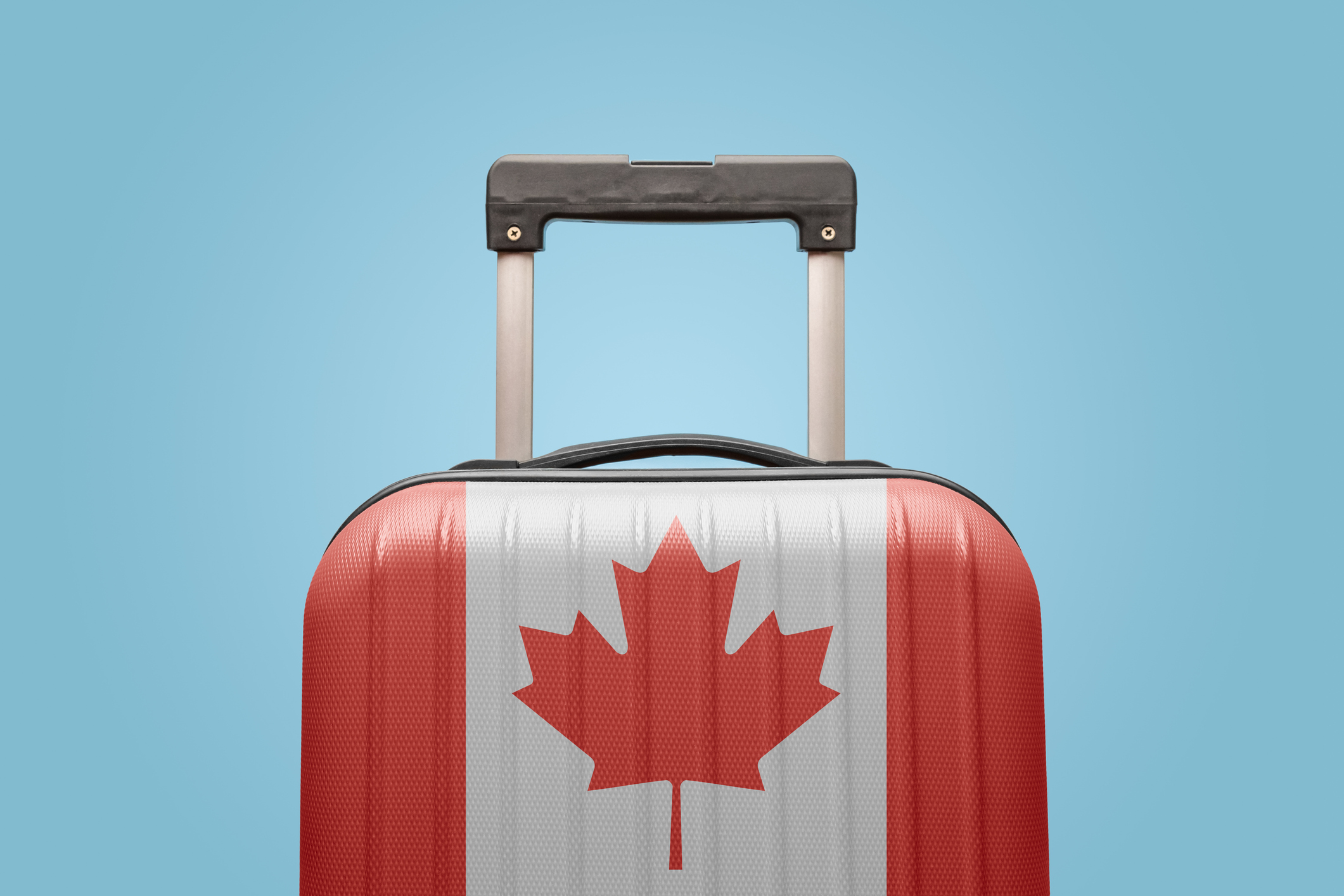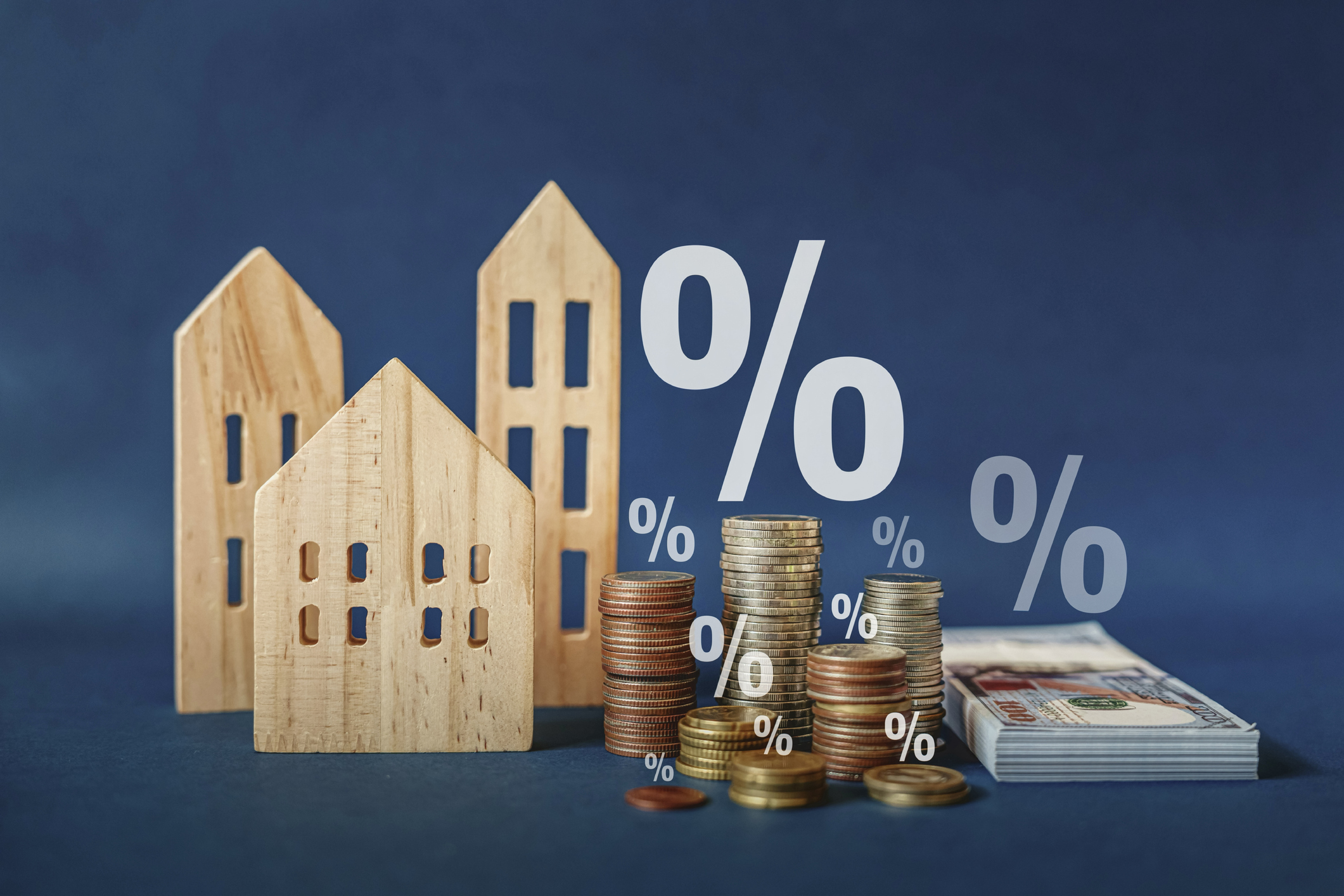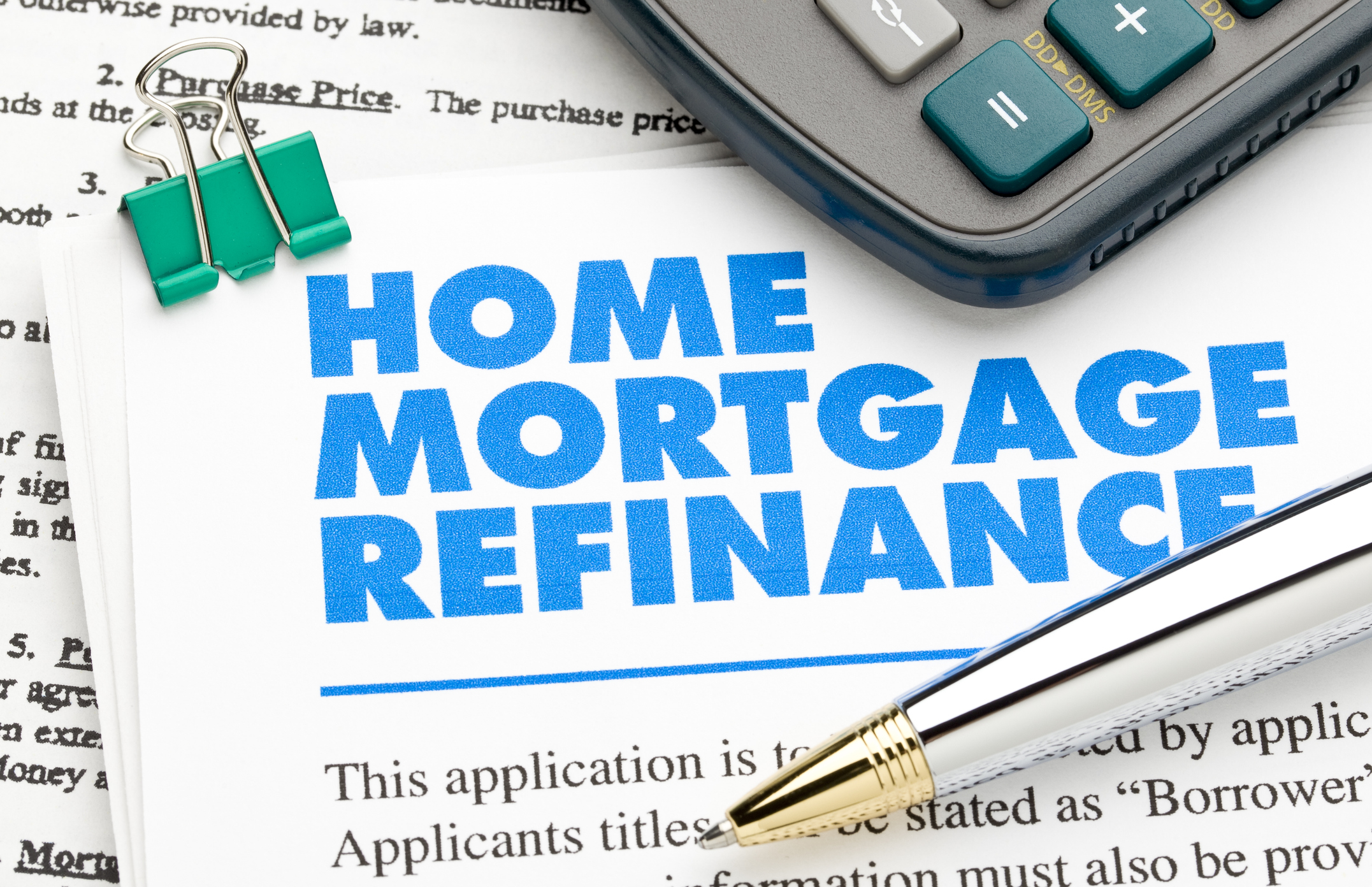Profit and prosper with the best of Kiplinger's advice on investing, taxes, retirement, personal finance and much more. Delivered daily. Enter your email in the box and click Sign Me Up.
You are now subscribed
Your newsletter sign-up was successful
Want to add more newsletters?
During harsh winters, Canadian snowbirds used to flock to their U.S. homes to relish in the warmer climate. But now, many are ditching their U.S. vacation homes to stay local.
Foreign nationals, Canadian snowbirds, and other international homeowners are putting their U.S. homes up for sale and foregoing traveling to the States. A weaker Canadian dollar and rising property costs are making it harder to justify the expense.
This growing trend could have ripple effects for Americans. Fewer seasonal residents may mean less spending at local businesses in popular snowbird destinations. It could also lead to a rise in available housing inventory, potentially shifting real estate dynamics in vacation hotspots.
From just $107.88 $24.99 for Kiplinger Personal Finance
Become a smarter, better informed investor. Subscribe from just $107.88 $24.99, plus get up to 4 Special Issues

Sign up for Kiplinger’s Free Newsletters
Profit and prosper with the best of expert advice on investing, taxes, retirement, personal finance and more - straight to your e-mail.
Profit and prosper with the best of expert advice - straight to your e-mail.
We get into the details of what’s driving this shift and what it could mean for buyers, sellers and local economies.
What’s causing the shift?
Snowbirds and long-term visitors are selling U.S. homes now more than ever. But the reasons are varied or a combination of many things, depending on who you ask.
The Canadian dollar (CAD) dropped to a 22-year low earlier this year. It’s normal for elections to bring in a wave of uncertainty, causing market volatility and instability. While the loonie rebounded a bit in April, there’s still a lot of uncertainty about how much Canadians can spend in the States.
A weaker Canadian dollar makes everything more expensive for visitors trying to live on a Canadian income while in the United States. As a result, fewer snowbirds may cross the border, potentially reducing revenue for U.S. tourism and local economies. Former Canadian Prime Minister Justin Trudeau has even urged citizens to spend their money at home.
“It might mean changing your summer vacation plans to stay here in Canada and explore the many national and provincial parks, historical sites, and tourist destinations our great country has to offer,” Trudeau said.
Rising U.S. housing costs push out foreign owners
It’s becoming increasingly difficult to own a home in the U.S. According to the Federal Reserve Bank, the median home sale price was $416,900 in the first quarter of 2025, up nearly $100,000 from five years ago, when it was $317,100.
It’s not just the purchase price that’s rising, ownership costs are climbing, too. A Consumer Federation of America report found that from 2021 to 2024, Arizona saw a 48% increase in homeowners' insurance premiums.
In Florida, a popular destination for snowbirds and international buyers, the average monthly premium is $789 per month, or $9,462 a year, making it the most expensive state for homeowners insurance.
The more difficult it is for international homeowners to pay for American housing, the more likely they will sell their homes and recoup some losses. One Canadian couple told the Wall Street Journal that they sold their Pompano Beach, Fla., for $100,000 more than they originally paid, six years after they bought it.
Curious about current home insurance rates? Compare some of today's best home insurance offers with the tool below, powered by Bankrate.
Political tensions and economic uncertainty drive Canadians away
Many Canadians and international visitors are stepping back from America due to the U.S. President implementing a 25% tariff on some Canadian-based goods. Some say the political climate makes them feel unwelcome, prompting many to reverse their usual travel plans. Flights from Canada to the U.S. are down 70% compared to this time last year, according to travel data site OAG.
Canadians are the top foreign buyers of U.S. properties, accounting for 13% of foreign housing transactions. According to the National Association of Realtors, almost half of all homes Canadians bought were vacation homes in Florida, Arizona and Hawaii.
One Canadian couple told Reuters they sold their home because of the current U.S. Administration.
“We felt we could not trust what he might do next to us as individuals and to our country. We no longer felt welcome nor safe,” they said.
How Canadian travel and housing shifts affect the U.S.

With fewer international visitors spending money on American soil, the country earns less revenue from those visits. According to the U.S. Travel Association, America welcomed more than 20 million Canadian visitors in 2024.
If America saw a 10% drop in Canadian travel could mean $2.1 billion in lost revenue and an estimated 14,000 American jobs lost.
This ongoing decline could also contribute to stock market volatility, creating further instability for investors. The market dipped sharply in April, complicating retirement planning for many older Americans. After years of disciplined saving and investing, some retirees and pre-retirees are watching their nest eggs shrink.
Even when markets see modest gains, continued uncertainty makes it difficult for those nearing retirement to feel secure. Some may remain in the workforce longer than expected to recover financial losses.
Others may be pushed into early retirement or feel compelled to claim Social Security benefits as soon as they’re eligible, often resulting in permanently reduced Social Security payments.
Meanwhile, housing markets could see a jump in available homes for sale, especially in warmer climates like Florida and Arizona. But even with more availability to Americans, that doesn’t necessarily make them more affordable. Americans are paying more for everything, from food to transportation to housing, but aren’t earning nearly enough to pay for those goods.
While the Canadian dollar doesn’t go as far as it used to, the American dollar isn’t doing great, either. The federal minimum wage is $7.25 per hour, the same rate for the last 16 years.
Even though many states have minimum wage standards, 13 states either don’t have one or, if they do, it’s lower than the federal minimum requirements. Meanwhile, inflation has gone up more than 23% in the last five years alone, according to Bankrate.
Rising costs for housing, food and everyday living are forcing many Americans to rethink their budgets. For some, that means cutting back on long-term savings goals just to cover immediate needs.
The bottom line
As Canadian snowbirds and international homeowners pull back from the U.S. housing market, the ripple effects stretch beyond tourism and real estate.
From job losses and reduced consumer spending to heightened market volatility, these shifts reflect broader economic pressures facing both Americans and their northern neighbors. Whether you're a homeowner, investor or retiree, staying informed on these trends can help you better navigate the uncertain road ahead.
Related content
Profit and prosper with the best of Kiplinger's advice on investing, taxes, retirement, personal finance and much more. Delivered daily. Enter your email in the box and click Sign Me Up.
Dori is an award-winning journalist with nearly two decades in digital media. Her work has been featured in the New York Times, Wall Street Journal, USA Today, Newsweek, TIME, Yahoo, CNET, and many more.
Dori is the President of Blossomers Media, Inc.
She’s extensively covered college affordability and other personal finance issues, including financial literacy, debt, jobs and careers, investing, fintech, retirement, financial therapy, and similar topics. With a strong journalistic background, she’s also worked in content marketing, SEO, affiliate marketing, content strategy, and other areas.
Dori graduated with a Bachelor’s degree in Multimedia Journalism from Florida Atlantic University. She previously served as the president of the Florida Chapter of the Society of Professional Journalists, where her chapter won the coveted “Chapter of the Year” award for two consecutive years.
-
 Is There Such a Thing As a Safe Stock? 17 Safe-Enough Ideas
Is There Such a Thing As a Safe Stock? 17 Safe-Enough IdeasNo stock is completely safe, but we can make educated guesses about which ones are likely to provide smooth sailing.
-
 We're 64 with $4.3 million and can't agree on when to retire.
We're 64 with $4.3 million and can't agree on when to retire.I want to retire now and pay for health insurance until we get Medicare. My wife says we should work 10 more months. Who's right?
-
 Missed an RMD? How to Avoid That (and the Penalty) Next Time
Missed an RMD? How to Avoid That (and the Penalty) Next TimeIf you miss your RMDs, you could face a hefty fine. Here are four ways to stay on top of your payments — and on the right side of the IRS.
-
 What Is an Assumable Mortgage and Could It Save You Thousands?
What Is an Assumable Mortgage and Could It Save You Thousands?With mortgage rates still elevated, taking over a seller’s existing home loan could lower monthly payments — if the numbers work.
-
 How to Budget as a Couple Without Fighting About Money
How to Budget as a Couple Without Fighting About MoneyThese tips will help you get on the same page to achieve your financial goals, with minimal drama.
-
 Is the Housing Market's 'Lock-In Effect' Finally Starting to Ease?
Is the Housing Market's 'Lock-In Effect' Finally Starting to Ease?As mortgage rates stabilize and fewer owners hold ultra-low loans, the lock-in effect may be losing its grip.
-
 $100,000 Travel Emergencies You Don't See Coming and How to Prepare
$100,000 Travel Emergencies You Don't See Coming and How to PrepareTravel emergencies can get expensive fast. Here's how to protect your wallet from the worst-case scenario.
-
 Countries That Will Pay You to Move: Cash Grants, Incentives and What to Know
Countries That Will Pay You to Move: Cash Grants, Incentives and What to KnowExplore real relocation incentives — from cash grants and tax breaks to startup funding — that make moving abroad or to smaller towns more affordable and rewarding.
-
 Mortgage Protection Insurance: What It Covers and When It Makes Sense
Mortgage Protection Insurance: What It Covers and When It Makes SenseHow mortgage protection insurance works, what it costs, and when it’s actually useful in a financial plan.
-
 How to Plan a Microvacation That Actually Feels Restful
How to Plan a Microvacation That Actually Feels RestfulHow a simple long weekend can boost your mood, reduce stress and make winter feel shorter.
-
 What to Watch for When Refinancing Your Home Mortgage
What to Watch for When Refinancing Your Home MortgageA smart refinance can save you thousands, but only if you know how to avoid costly pitfalls, calculate true savings and choose the right loan for your goals.

